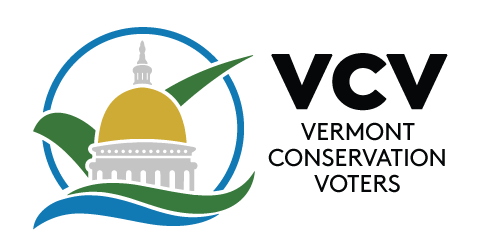Part of our Summer Session Deep Dive on Climate Series

As Vermont continues to work toward a notable reduction of our greenhouse gas emissions, we’re going to need to make a big transition away from gas-guzzling cars to cleaner modes of transportation. The good news is the 2022 legislative session in Vermont closed with significant investments in sustainable transportation that will help expand Vermonters’ options for moving around and spending less on gas. Funding for electric vehicles (EV) incentives and charging infrastructure in particular saw major wins.
But, mind you, we knew from our history that it was not a slam dunk and that we needed to keep legislators and the Governor’s feet to the fire. We are pleased to see the progress made on the transportation front and appreciative that our legislative allies ensured that Vermont is now prioritizing investments in vehicle electrification programs. Now we’ll be watching and pushing the Scott Administration to follow through and deploy these dollars now, rather than later as he proposed.
Below are the highlights of the progress we have made in Vermont on transportation electrification this year from the Transportation and Appropriations bills. Across these programs, we successfully pushed to ensure that sufficient funds were made available for education, outreach, and translation services so that all Vermonters have a meaningful opportunity to benefit from them.
Electric Vehicle (EV) Incentives and Marketing
Combined, these incentives will help thousands of low- and moderate-income Vermonters purchase EVs:
- Incentive Program for New Plug-in Electric Vehicles (PEVs). The legislature authorized $12,000,000 for PEV purchase and lease incentives under the Incentive Program for New PEVs.
- MileageSmart. The legislature authorized up to $3,000,000 for purchase incentives under MileageSmart, which is the State’s vehicle incentive program for used high-fuel-efficiency and electric vehicles.
- Replace Your Ride. The legislature authorized $3,000,000 for incentives under Replace Your Ride, which will be the State’s program to incentivize Vermonters to remove older low-efficiency vehicles from operation and switch to modes of transportation that produce fewer greenhouse gas emissions and, again. This program was originally created in the 2021 Transportation Bill and is expected to be launched in the coming months.
- Drive Electric Vermont (DEV). The legislature authorized up to $2,000,000 to expand Vermont’s public-private partnership with DEV to support the expansion of the PEV market. DEV is the lead resource for vehicle electrification expertise and marketing in Vermont.
- eBike Incentives. The legislature authorized $50,000 for incentives under a continuation of the eBike incentives, which will be the State’s programs for providing incentives for purchasing electric bicycles. This program was originally created in the 2021 Transportation Bill and is expected to be launched in the coming months.
EV Charging Infrastructure
Electric vehicle supply equipment (EVSE). In furtherance of the State’s goal to increase the presence of EVSE in Vermont:
- The legislature authorized up to $6,250,000 to install level 3 chargers along with the State highway network. This should get 100 or more fast chargers built along Vermont highways. For more on the difference between “level 3” (also known as “fast chargers” or “DC fast chargers”) and “level 2” chargers see here or here.
- The transportation bill also amends Vermont’s goal to have a level 3 EVSE charging port available to the public within one driving mile, down from five miles, of every exit of the Dwight D. Eisenhower National System of Interstate and Defense Highways within the State and 25 driving miles, down from 50 miles, of another level 3 EVSE charging port available to the public along a State highway.
- The legislature authorized up to $10,000,000 to install EVSE at multi unit dwellings, workplaces, and public venues and attractions, such as parks, State Parks, access areas, downtowns, museums, and ski mountains, which should get over 1000 new level 2 chargers installed around the state.
